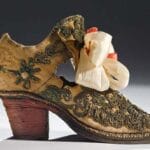Comic books have captivated audiences for generations, from their World War II origins to today’s blockbuster movies. While many fans are familiar with the major storylines and characters, a universe of lesser-known trivia exists. Prepare to dive deep into the comic world as we unveil ten of the most obscure facts that might just change how you see your favorite heroes and their stories.
The Real Origin of Indiana Jones’s Boulder Scene
Everyone remembers the thrilling boulder chase in Raiders of the Lost Ark. Many also recall the parody in Duck Tales the Movie: Treasure of the Lost Lamp. But did you know this iconic scene wasn’t an original Indiana Jones idea? Its true origin lies in a 1954 Uncle Scrooge comic by Carl Barks titled The Seven Cities of Cibola. In this adventure, Scrooge McDuck, Donald, and his nephews face a similar rolling peril. Steven Spielberg, a fan of these comics, paid homage to this scene in his famous film, leading many to believe it was his unique creation.
Comic Books: An Original American Art Form
Most people point to jazz as America’s sole original art form. However, research suggests comic books also hold this distinction. David Jay Gabriel from the New York City Comic Book Museum lists five purely American art forms: jazz, musical comedy, the mystery novel, the banjo, and comic books. While the very first comic book appeared in England in 1897, compiling children’s newspaper strips, the superhero comic as we know it was born in the U.S. just before World War II. Characters like Captain America and Superman emerged, shaping what’s known as the Golden Age of comics. This medium, more popular than ever, proudly stands as an American original.
The Captain Marvel Copyright Conundrum
The comic book world has seen its share of copyright disputes, especially between giants Marvel and DC. One of the most notable involved the name “Captain Marvel.” DC’s character first appeared in 1939, often using his magic word “Shazam!” to transform. Marvel introduced their own Captain Marvel in the late 1960s. After a long and complex battle, Marvel’s character retained the name. DC’s original hero is now exclusively known as Shazam, conveniently avoiding confusion for moviegoers enjoying their recent film adaptations.
Elvis Presley’s Love for Captain Marvel Jr.
The King of Rock and Roll, Elvis Presley, was a huge comic book fan. His favorite? Captain Marvel Jr., a DC Comics title. He discovered the hero at age 12 and became an avid reader. It’s said that Elvis’s iconic jet-black hair with the curl in the middle was inspired by this superhero. In his preserved childhood apartment, a 1949 issue of Captain Marvel Jr. #51 still lies on his desk. Captain Marvel Jr.’s alter ego, Freddy Freeman, transformed by saying his hero’s name, “Captain Marvel!” Elvis reportedly amassed a large collection of these comics.
Real-Life Celebrities Guest-Starring in Comics
Comic books have frequently featured real-life celebrities and politicians. For instance, Muhammad Ali once fought Superman to save Earth from aliens (and Ali won!). During Barack Obama’s 2009 inauguration, a Spider-Man comic showed the villain Chameleon impersonating the president-elect. Spidey cleverly unmasked him by asking a question about Obama’s high school basketball nickname, “Barry O’Bomber.” Rapper Eminem famously knocked out The Punisher in a special issue. Other notable appearances include John F. Kennedy in Superman, Anderson Cooper in Black Widow, David Letterman in The Avengers, and Stephen Colbert in Spider-Man. Even Charles Barkley battled Godzilla in a Nike-produced comic!
Everyday Words and Phrases from the Funny Pages
You might be surprised to learn that some common words and phrases originated in comic strips. While “Brainiac” existed before Superman’s foe, the comic popularized it, linking it to a super-intelligent computer personality. The term “goon,” meaning a hired thug, likely comes from the Popeye character “Alice the Goon.” Linus from Peanuts gave us the term “security blanket.” The phrase “back to the drawing board” was coined by cartoonist Peter Arno in 1941, referencing his own work. Shazam was the first to exclaim “holy moly!” Other terms with comic roots include “McCarthyism,” “for crying out loud,” and even the word “Jeep.”
The True First Female Superhero
Many believe Wonder Woman was the first female superhero, but that title actually belongs to Sheena, Queen of the Jungle. She first appeared nearly four years before the Amazonian princess, debuting as the “Guardian of the Jungle” with various superpowers. Sheena wasn’t alone; several other superpowered women predated Wonder Woman. Fantomah from Jungle Comics is often cited as the very first, and Miss Fury, created by a woman, also arrived on the scene before Diana Prince. While Wonder Woman is undeniably one of the most successful and popular female superheroes, she wasn’t the pioneer.
Real People Who Inspired Iconic Comic Characters
Great fictional characters often draw inspiration from real-life individuals. A prime example in comics is the X-Men series. Created by Stan Lee and Jack Kirby in the early 1960s during the civil rights movement, the series reflects this era. The peaceful Professor X (Charles Xavier) was based on Dr. Martin Luther King Jr., while his counterpart Magneto, who advocated for mutant supremacy through intimidation, was inspired by Malcolm X. Other examples include Ironman (Tony Stark), modeled after Howard Hughes, and the Joker, whose appearance was influenced by German actor Conrad Veidt’s role in The Man Who Laughs. On the flip side, actor Nicholas Coppola adopted the stage name Nic Cage, inspired by his favorite comic book hero, Luke Cage.
The Even More Obscure Corners of the Spider-Verse
The hit animated movie Spider-Man: Into the Spider-Verse introduced audiences to alternate versions of Spider-Man, like Spider-Ham (Peter Porker), Spider-Gwen, and Spider-Man Noir. However, the comics delve into even more bizarre variations. Ever heard of Sheep-Boy? In one parallel universe, Peter Parker was bitten by a radioactive sheep, gaining all the powers of… a sheep. Spider-Man was reportedly Stan Lee’s favorite creation, and Lee even wrote himself into Spider-Man comics and cartoons for adventures, much like his famous movie cameos. Despite the many versions, Spider-Man remains one of the world’s most beloved superheroes.
Wonder Woman’s Creator Also Co-Invented the Lie Detector
William Moulton Marston is one of three individuals credited with inventing the lie detector. But his contributions didn’t stop there. Marston was also a lawyer, a psychologist, the creator of the DISC system for personality classification, and, remarkably, the creator of Wonder Woman. He began working as an educational consultant for All-American Publications (which later became DC Comics) in 1940. The following year, he created Wonder Woman, who debuted in All-Star Comics #8. It seems perfectly fitting that the inventor of the “Lasso of Truth” would also be instrumental in developing a lie-detecting machine.
Comic books are a rich tapestry woven with fascinating details and hidden histories. These obscure facts offer just a glimpse into the surprising depths of this beloved medium. From unexpected origins to real-life inspirations, the world of comics is full of wonders waiting to be discovered.
What’s the most surprising comic book fact you’ve ever learned? Share your thoughts in the comments below!










